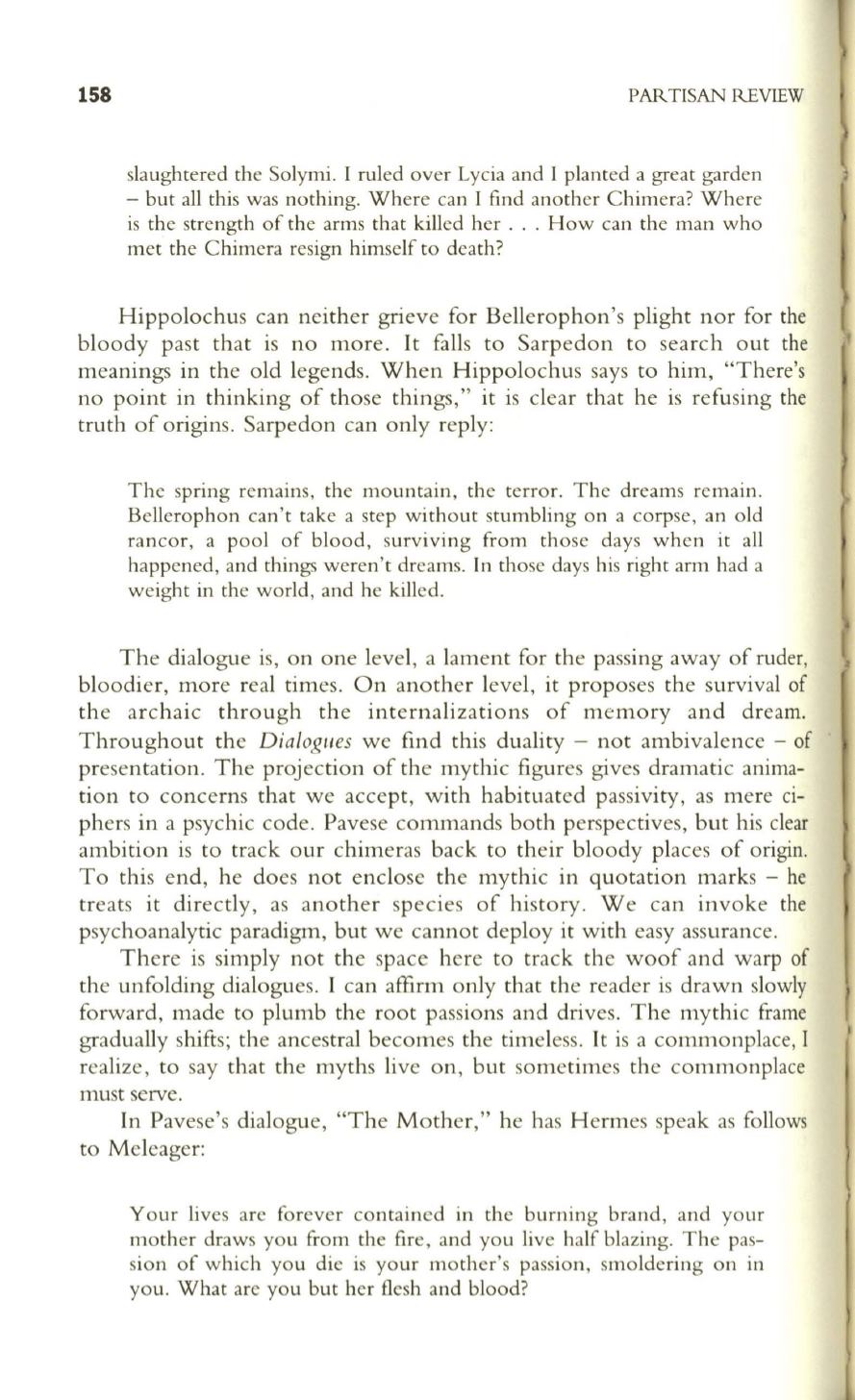
158
PARTISAN REVIEW
slaughtered the Solymi. I ruled over Lycia and I planted a great garden
- but all this was nothing. Where can I find another Chimera? Where
is the strength of the arms that killed her ... How can the man who
met the Chimera resign himself to death?
Hippolochus can neither grieve for Bellerophon's plight nor for the
bloody past that is no more. It falls to Sarpedon to search out the
meanings in the old legends. When Hippolochus says to him, "There's
no point in thinking of those things," it is clear that he is refusing the
truth of origins. Sarpedon can only reply:
The spring remains, the mountain, the terror. The dreams remain.
Bellerophon can't take a step without stumbling on a corpse, an old
rancor, a pool of blood, surviving from those days when it all
happened, and things weren't dreams. In those days his right arm had a
weight in the world, and he killed.
The dialogue is, on one level, a lament for the passing away of ruder,
bloodier, more real times. On another level, it proposes the survival of
the archaic through the internalizations of memory and dream.
Throughout the
Dialogl/es
we find this duality - not ambivalence - of
presentation. The projection of the mythic figures gives dramatic anima–
tion to concerns that we accept, with habituated passivity, as mere ci–
phers in a psychic code. Pavese commands both perspectives, but his clear
ambition is to track our chimeras back to their bloody places of origin.
To this end, he does not enclose the mythic in quotation marks - he
treats it directly, as another species of history. We can invoke the
psychoanalytic paradigm, but we cannot deploy it with easy assurance.
There is simply not the space here
to
track the woof and warp of
the unfolding dialogues. I can affirm only that the reader is drawn slowly
forward, made to plumb the root passions and drives. The mythic frame
gradually shifts; the ancestral becomes the timeless. it is a commonplace, I
realize, to say that the myths live on, but sometimes the commonplace
must serve.
In Pavese's dialogue, "The Mother," he has Hermes speak as follows
to Meleager:
Your lives are forever contained in the burning brand, and your
mother draws you from the fire, and you live half blazing. The pas–
sion of which you die is your mother's passion, smoldering on in
you. What are you but her flesh and blood?


